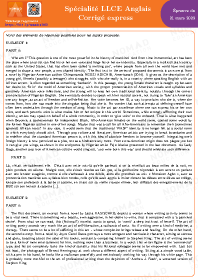Between 1497 and 1763 English seamen sailed all over the world, exploring new lands, setting up colonies and trading posts. In 1607 Captain John Smith founded Jamestown in Virginia in North America. In 1769, Captain Cook claimed New Zealand for the British crown. So by 1783, Britain had an empire which included colonies in Canada, America and the West Indies including New Zealand. It also had trading posts in India. However in 1776 the 13 British colonies in North America decided to break away from the mother country and after they won the War of Independence formed a new country.
By 1783, after a war with France over territories, Britain gained new colonies in North and Central America.
Between 1783 and 1924, the British Empire expanded and covered a fifth of the land in the world. Britain was said to "rule the waves". However, nowadays historians agree that colonisation was not a happy experience for most of the people whose lands were being colonised.
Of course the British Empire was a source of inspiration for writers and artists. One of the best known stories about sailing and exploration is undoubtedly Robinson Crusoe (1719) by Daniel Defoe (1660-1731). It tells the story of a man cast away on an island after a shipwreck and how he learns to survive.
In America, the myth of the Frontier, an invisible border between the lands that had been settled and the wilderness also inspired writers and artists. Foremost among the stories about this westward expansion is The Last of the Mohicans (1826) by James Fennimore Cooper, a "compelling tale of wilderness adventure" (Encyclopaedia Britannica).
Jack London (1876-1916) left school at an early age and went on several adventures, which were a source of inspiration when he turned to writing. The central character in his short novel The Call of the Wild (1903) is a dog which learns to survive in a harsh environment.
Even in the 20th and 21st century, adventure stories and films are still extremely popular. A critic described Cast Away (2000) directed by Robert Zemeckis as "a late 20th century response to Daniel Defoe's Robinson Crusoe". Tom Hanks plays the part of a man who is stranded on a desert island after a plane crash. The television series Lost (2005-2010) focusses on a group of 48 people who survive a plane crash on an island and have to learn to work together to make it out alive.
The main character in Sean Penn's film Into the Wild (2007) disillusioned with his wealthy family and their values, and with society, decides to go and live by himself in the wild, to see if he can be self-reliant and survive the way pioneers did on the Frontier in the 19th century.















